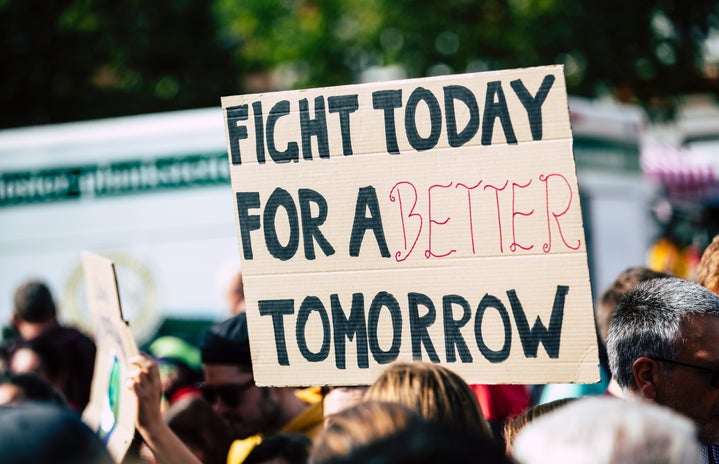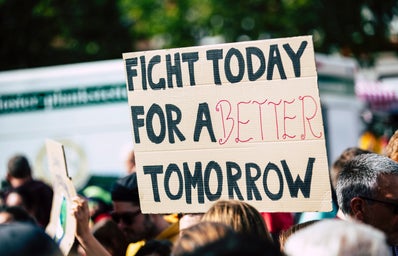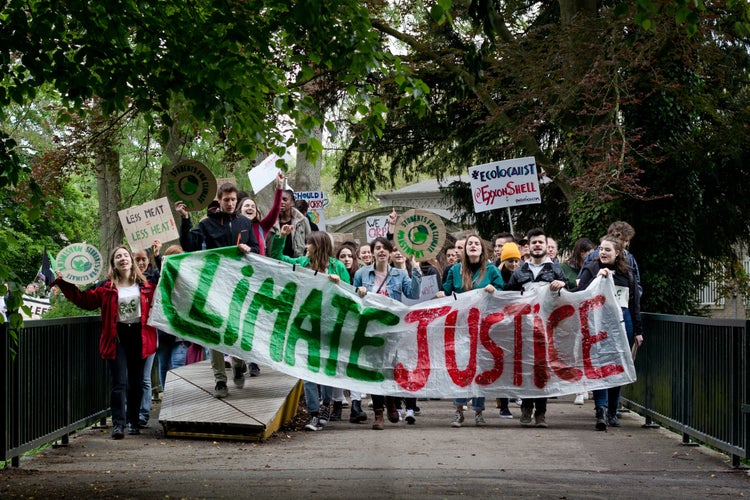This past summer, I took an online class from Stanford University called “Why is Climate Change So Unbelievable?” It was an awesome interdisciplinary course that examined the reasons why society isn’t taking the necessary steps to combat climate change, and brought together people from different majors and interests to investigate how we can effectively raise awareness about the issue. For me, one of the best things about this course was how it emphasized valuing the humanities as a form of activism to effectively frame the issue of climate change.
One example is by normalizing writer-activists, as coined by Rob Nixon. In his book Slow Violence, Nixon describes climate change as a form of “slow violence,” meaning it’s a type of violence that exerts a force in a dramatic, drastic way without the sudden or explosive qualities we normally associate with violence. In this case, it explains why people from lower socio-economic statuses are hit the hardest by the impacts of climate change and how this phenomenon has been steadily increasing over time, even when most people from wealthier communities are completely unaware of this happening. Rob Nixon introduces the issue of depicting slow violence in that it’s difficult to represent events and harms done onto communities when they largely seem invisible. The key to fixing this issue, according to Rob Nixon, is to encourage writers to come to the forefront of climate activism to represent climate change in a way that explicitly states how it’s a part of all of our lives right now.
Rob Nixon’s ideas make a lot of sense. As much as we need people who specialize in STEM to tell us what the implications of climate change are and to update us on new research, it’s not like STEM people are typically trained to be able to write for a large audience (i.e. people who don’t have a similar STEM background). So, we need people to be able to interpret the science and explain how it is and will be a part of our everyday lives. While we can look to journalism for this, it’s important to note how the media can easily turn people off from devoting their attention to combatting climate change due to the increasing amount of political polarization in the media. Consequently, the media fails in developing a narrative that effectively frames the climate crisis and how it’s actually affecting different communities nationally and internationally. Persuading people to join a cause is already challenging, but when it comes to a global issue like climate change, we need to consider who would be the best at making people recognize the monster they created and yet can’t come to terms with.
Writers, on the other hand, know the power of language and how to inspire others to affect change because we have seen them do this before in other movements. Take, for example, the Civil Rights Movement. There were several literary and artistic movements among Black artists in the 20th century and into the 21st century that raised awareness about the diverse experiences Black people have in America. From Narrative of the Life of Frederick Douglass to Nella Larsen’s Passing and Colson Whitehead’s Sag Harbor, these are a sample of influential stories that center Black people’s experiences in America and have also challenged the American literary status quo. To get their messages across, these authors had to either draw from their own experiences or put themselves in others’ shoes to unveil America’s curtains and advocate the need for and benefits of racial equality.
So long as we ensure to lift the voices of writer-activists from indigenous communities and other people of color, there is no reason why we shouldn’t be able to do that in the climate activism movement. Now, more than ever, people are understanding how climate change is making its presence known in our lives and that this has been an issue that has been brewing for a long time. We need to elevate the voices of writer-activists who come from communities that have already been negatively impacted by climate change because they are the most able to embody Rob Nixon’s idea of making a seemingly invisible issue visible. On a related note, since statistics show that higher socio-economic communities are less likely to experience the severe effects of climate change at this point in time, we also need writer-activists who may not have been directly impacted by climate change yet, but who are able to reach audiences from wealthier communities who feel that they are immune from climate change’s consequences.
Additionally, in order to make room for these writer-activists, we need to rethink literature’s relationship with the natural world. We are no longer at a point in society when the only times we encounter the natural world in literature is by reading poetry praising it or in science fiction. To call the consequences of climate change terrifying is an understatement, but it needs to be talked about. More importantly, climate change needs to be talked about in a way that doesn’t repulse people or encourage them to look away and instead inspires them to take action. If we are using the language arts to reach a large audience, then we must draw upon the human element of climate change—not just how humans have intervened with the natural world, but how our relationship with it has changed, and tell stories of what can be done to restore it. After all, that’s the beauty of literature and storytelling: it makes this big world feel a little smaller and demonstrates our commonalities and ability to change not only ourselves but our communities.




